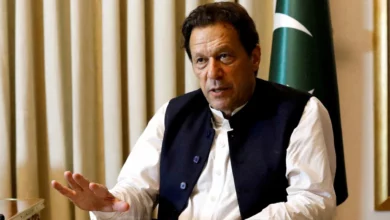Thousands of Upper Egypt’s tribes’ members, former loyalists and MPs of the dissolved National Democratic Party (NDP) blasted the newly approved Treachery Law Wednesday night in a conference in the village of Nagaa Hammadi. They threatened to occupy Upper Egypt and prevent parliamentary elections taking place there if the law was enforced.
The Treachery Law, which is pending approval from the ruling Supreme Council of the Armed Forces (SCAF), is intended to prevent remnants of the Mubarak regime from participating in politics for a maximum of five years. Under this law, figures with ties to the Mubarak regime will also be removed from government positions, in addition to being banned from running in elections or being nominated to any government body or council for a minimum of five years from the date of sentencing.
The Upper Egypt conference titled “beware of Upper Egypt’s anger” was organized by the two newly formed political parties, the Freedom Party and the Egyptian Citizen Party, which are led by former regime stalwarts and ex-NDP members.
“If Treachery law is activated, I’m afraid that Upper Egypt’s big families will forcibly close voting stations and prevent family members from running in elections, which would probably result in gunfights and extreme violence,” said Mahmoud Nafady, general secretary of the Freedom Party in Cairo.
According to the former parliamentarian, it is wrong to punish someone for a crime he committed before the law was passed, since it was not a crime to be part of the NDP before.
Nafady added that now – almost nine months after Mubarak’s ouster – there are guarantees to ensure a democratic and transparent electoral process which allow people to exclude former NDP members by their own free choice.
“Egypt’s legal system has sufficient laws to punish any person who rigged elections if proven. We don’t need an exceptional law,” he said.
Salah Hasaballah, a founding member in the Egyptian Citizen Party, expressed confidence that the military rulers will not pass a law that excludes Mubarak regime affiliates from political life.
“We have confidence in SCAF that it won’t approve such an unfair law and we’ll continue to exercise pressure in case this law is activated,” said Hasaballah.
Hasaballah, also a former leader in the Ghad Party, explained a number of steps both parties will take to confront the Treachery Law. First, they will legally appeal its constitutionality before the Supreme Constitutional court. Second, they will internationalize the case and take it to the United Nations, which they say violates the Human Rights declaration of which Egypt is a signatory. And finally, they will submit a petition to the Inter-Parliamentary Union, an international organization that acts as an international arbitrator in parliamentary conflicts.
Nabil Zaki, political analyst and former editor in chief of Al-Ahaly newspaper said these families do not have the power to halt elections in Upper Egypt.
“These are empty threats,” said Zaki. “They’re incapable of achieving anything of that sort. To say that the NDP has huge popular support is a myth. Most former NDP members were members only on paper.”
According to Zaki, former NDP members are not as strong as they claim to be and proof of that is that they couldn’t protect their regimes from falling apart.
“They used to depend on tribal and clan relationships as well as thugs to win elections, but now people can identify those who used to exploit them,” he said.
However, Zaki explained the importance of differentiating between leaders of the dissolved NDP who deserve to be punished and those who joined but did not have influence to stop corruption, but who may stand a chance of winning in elections.
“The second type could bolster their reputations by exposing the corruption that used to take place and report about perpetrators. They should clearly state their positions regarding social justice,” said Zaki.
Meanwhile, seven presidential hopefuls and revolutionary youth groups are pushing to activate the controversial law.
The Political Parties Committee approved about eight new parties that have members once affiliated with the previous regime. The parties vow to nominate candidates for presidential elections, the date of which has yet to be determined.




